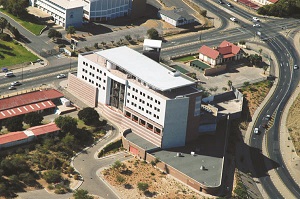
Headline inflation continues to trend down but base effects starting to distort monthly as well as annual readings

Base effects on both ends of the spectrum are now coming into play with the calculation of monthly inflation, year on year as well as month on month. These distortions are however evened out by the so-called average annual inflation.
It came as a pleasant surprise when the Namibia Statistics Agency released the Namibia Consumer Price Index on Thursday showing that headline inflation has taken its biggest dip since January last year, coming in at a comfortable 3.6%. This measure of inflation has come down consistently every month since January 2017 except for September when there was a slight 0.2% upward blip. For the fourth quarter of 2017, it measured 5.2% every month.
These statistics must be viewed in context. The 3.6% monthly reading comes from a very high annual base of 8.3% in January last year. Compared to the annual average inflation, the monthly reading would be much higher, in the order of about 5%.
Slightly disconcerting is the month on month inflation which stood at 1.6% for January. Similar to the annual comparison, this reading in turn comes from a very low base. For the eleven months from February 2017 to January 2018, average month on month inflation was a mere 0.17% per month.
Average annual inflation for 2017 was 6.2% down from 6.7% in 2016.
Statistician General, Mr Alex Shimuafeni said the January slowdown was recorded in all categories comprising the consumer price index except for Education, Transport and Health. Prices in Education jumped by an enormous 10%, made up mostly by the almost 15% jump in Primary and Secondary Education. It is however normal for education to show its highest increase in January since the sector operates on a single annual increase, always at the beginning of the year. During the rest of 2017, the base effect will also be seen in education as prices are expected to remain steady up to the end of the academic year. Education is one of the minor categories in the inflation basket carrying a contributive weight of only 3.65%, hence the small impact on headline inflation.
The category with the heaviest weight, Housing, water, electricity, gas and other fuels, contributing more than 28% of the whole basket, only increased by 3.6% showing the strong correlation between headline inflation and the categories with the combined heaviest weights. The four heaviest categories out of the total of twelve categories, together constitute almost three quarters of the consumer price index.
“The January 2018 All Items Index increased to 130.5 up from 126.1 in January 2017. On a monthly basis, price levels increased in all the categories with the exception of Transport which decreased to 0.6% while Recreation and culture and Communication remained unchanged at -0.1 and 0% respectively” said Mr Shimuafeni.









































